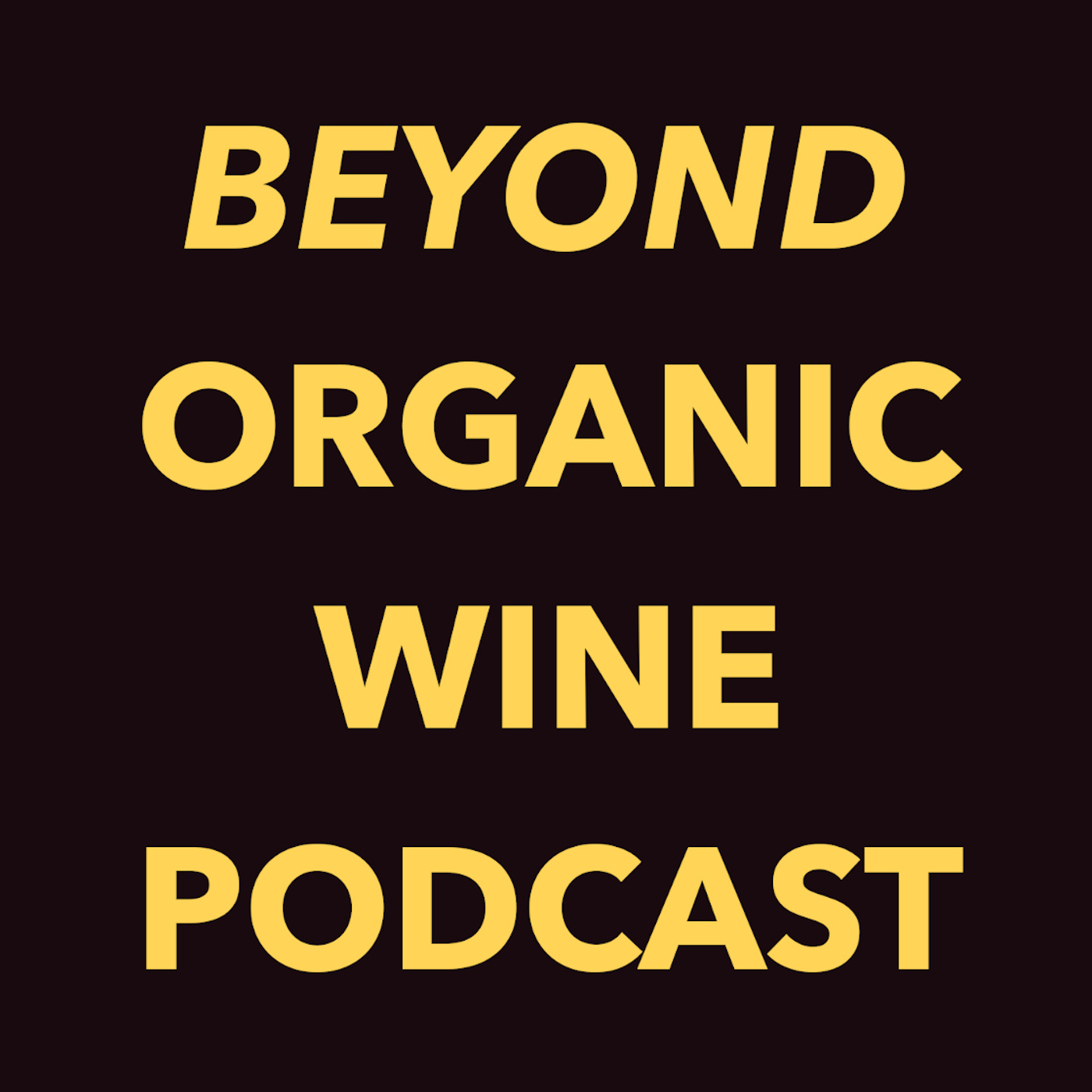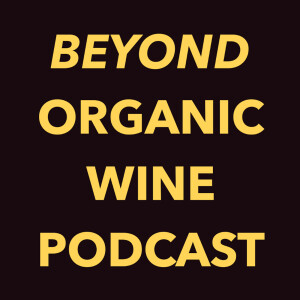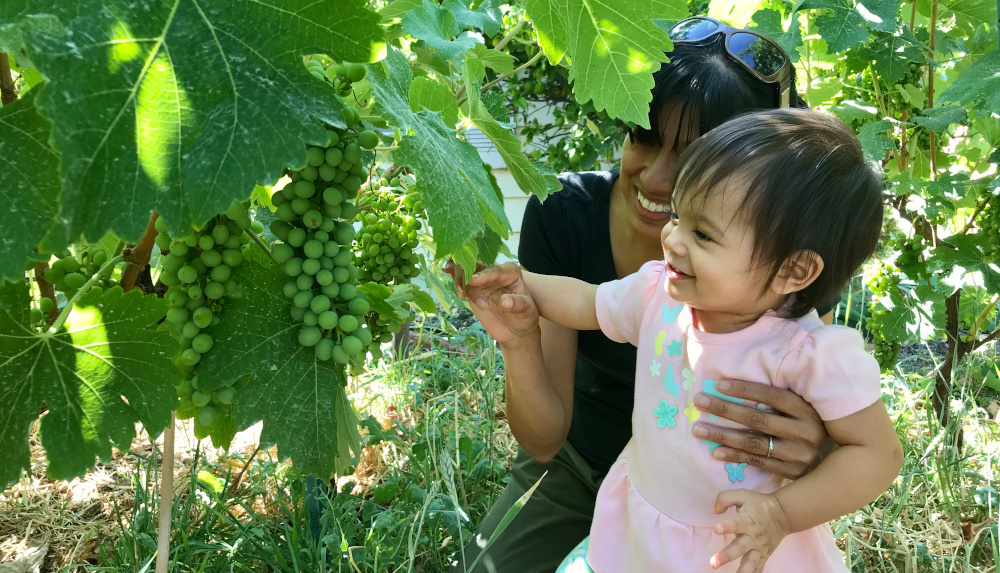
190.7K
Downloads
199
Episodes
Organic Wine is the gateway to explore the entire wine industry - from soil to sommeliers - from a revolutionary ecological perspective. Deep interviews discussing big ideas with some of the most intriguing people on the cutting edge of the regenerative renaissance, about where wine comes from and where it is going.
Episodes

Monday Jan 27, 2025
Regenerative Viticulture Foundation - Becky Sykes
Monday Jan 27, 2025
Monday Jan 27, 2025
Becky Sykes is the Program Director of the Regenerative Viticulture Foundation, and she’s gives us a great introduction to many of the resources and opportunities available to wine producers through their work. Becky tells us about the RVF’s upcoming 1 block challenge, as well as their regenerative Toolkit that you can participate in as a winegrower, and we discuss many of the other resources and ideas that the RVF brings attention to. In short, you’ll hear many reasons why and how you can get involved with the Regenerative Viticulture Foundation and help move viticulture in a regenerative direction.
https://www.regenerativeviticulture.org/
Also, please check out this past episode which discusses and gives resources for regenerative ag data:
https://www.organicwinepodcast.com/episodes-1/ecdysis-regenerative-wine
Here are some fun and informative links about ecoacoustics:
Ecoacoustics: The Ecological Investigation and Interpretation of Environmental Sound
Sounds of the underground reveal soil biodiversity dynamics...
A Fun Video About Soil Ecoacoustics
Your support is greatly needed and appreciated:
You Can Support this podcast by subscribing via patreon.
Or by donating or taking action at:

Wednesday Jan 15, 2025
Better Living (and Drinking) Through Hybrid Grapes with Bruce Reisch
Wednesday Jan 15, 2025
Wednesday Jan 15, 2025
Bruce Reisch joined the faculty of Cornell University in New York in 1980 and spent the last 40 years specializing in developing new grape cultivars as well as new grape breeding techniques. During this time his program released 14 new grape cultivars, 10 of which are wine grapes. In fact I have one of his most popular grapes, Traminette, growing with a persimmon tree in my front winegarden here in LA. Bruce was also Chair for over 10 years of the Grape Crop Germplasm Committee, a national committee overseeing U.S. Department of Agriculture efforts to preserve wild and cultivated grapevines. He has studied grapes all over the world, published many papers on a variety of topics in the realms of Grape breeding and genomics, Molecular genetic mapping, and Marker-assisted selection, and won awards for the excellence of his grapes and his career achievements.
Bruce talks about the qualities of most of the cultivars that were developed during his time at Cornell, and gives us a historical context and an overview of current practices and objectives for grape breeding. We also discuss the possibility, almost a thought experiment, of growing a seedling vineyard to mimic the genetic variation that happens as grapes propagate and grow without human influence in forest lands. There are so many juicy tidbits throughout this conversation, it’s pointless to start listing just a few. This is a fantastic, comprehensive introduction to hybrid grape culture and why it is the present and future of wine.
A big thanks to our sponsor:
Links to grape fungal resistance tables:
(Please note: I offer these links as examples only of tables that give ratings on fungal resistance. Resistance is never absolute, varies from location to location, and is influenced by many factors including: climate, weather, care, trellising, micro-climate, soil health, and many other factors. I do not endorse either the information nor the sources of the information, and I strongly recommend gathering lots of information from many sources, especially from growers of the cultivars, in your region if possible.)
Your support is greatly needed and appreciated:
You Can Support this podcast by subscribing via patreon.
Or by donating or taking action at:

Sunday Jan 05, 2025
The First Principle of Regenerative Viticulture
Sunday Jan 05, 2025
Sunday Jan 05, 2025
Behind the ecological devastation caused by conventional, industrial viticulture and agriculture in general are ideas of disconnection and individualism, which lead to extraction and parasitism. These won't be solved by focusing on soil health. We need to rebuild our belonging to the community of life. Gratitude is a great place to start to reconnect with our dependence on our community.
The Haudenosaunee Thanksgiving Address
Beyond Organic Wine Reading Recs
You Can Support this podcast by subscribing via patreon.
Or by donating or taking action at:

Monday Dec 16, 2024
Monday Dec 16, 2024
My guest for this episode is Daniel Callan, the cellar man behind Slamdance Koöperatieve. Daniel pointed out to me recently that I've been too focused on winegrowing. I had to agree, and Daniel’s suggestion was that we talk about how the past of winemaking may actually be its future. Because, essentially, all wines made throughout history until sometime around the start of the 20th century, were natural wines, and were made without additives nor fossil fuel powered, high-tech wineries and wine factories. Daniel is a student of the history of winemaking in general, but in California specifically. He believes everything we’re trying now has already been tried and we don’t need to reinvent the wheel. We can learn from those who came before… we just have to read some books that we can find at the library. He even looks to the old vines as a kind of genetic library for what does well in his region, and makes wine from varieties that mostly don’t exist elsewhere in any scalable quantity. This is a refreshingly technical winemaking episode that follows Daniel’s process for making his wine in detail from harvest to bottling, as well as a look at how we can find answers to the challenges of climate change and a post-industrial world by looking to the past.
@slamdancekooperatievewines
You Can Support this podcast by subscribing via patreon.
Or by donating or taking action at:

Sunday Dec 01, 2024
Sunday Dec 01, 2024
This episode features a conversation with Adam Tolmach of Ojai Vineyards, and it’s located not too far from Los Angeles in distance. Adam Tolmach lost his estate vineyard a couple decades ago to a vine disease that is endemic to Southern California. This disease has become a serious problem for anywhere in North America that has mild enough winters… and that area is steadily creeping north. This vine disease is known as Pierce's Disease, it is spread by insects… specifically sharpshooters, and as Adam suggests, it was the cause of the death of tens of thousands of acres of vineyards in Southern California, and likely contributed to the contraction of the wine industry here and its move to Northern California by the end of the 19th century.
There are currently only two options for preventing your vineyard from succumbing to Pierce's Disease if you live in an area that has it, which is pretty much the entire Southern United States: you can either spray aggressively with knock-down insecticides – the intense, kill-on-contact kind – OR you can plant varieties of grapes that have inherent resistance to the disease… and those varieties of grapes are the kind that contain the genetics of the native vines that evolved with the disease. In other words, you need hybrids. There are no vinifera varieties that are resistant to Pierce's Disease.
So, in 2017, Adam resurrected his estate vineyard by planting a selection of modern hybrid grapes that were bred here in California specifically to be resistant to Pierce's Disease. There are so many really incredible discussion points that come up in this conversation, but I wanted to give some further context to this.
Nothing illustrates the truth that hybrids are the future of wine more than this disease. With climate change, the range of this disease is continually spreading further north. It is on the doorstep of 90% of the winemaking in the US, and it knocking louder every year. It was recently found in Humbolt County, which is almost to California’s northern border. It is a zero tolerance disease… as Adam says, one bite from an insect that carries the disease can kill that vine within about 3 years. So the choices are pretty stark about what you can do to deal with it: either A) cling to vinifera and nuke your vineyards with really awful chemical insecticides continually, essentially creating a dead zone around your vines, or B) adapt and embrace change and build a wine culture ecologically on a greater diversity of varieties.
As I began researching for this conversation with Adam Tolmach, I discovered that there are quite a few vineyards who have planted small amounts of the resistant varieties that Adam grows. Even Caymus in Napa Valley. Nobody is really publicizing it yet, but hybrids are being integrated quietly, almost surreptitiously into our wine culture here. We’re in the don’t ask, don’t tell phase with regard to hybrids in California. Someday soon, we’re just going to have to grow up and embrace them as equals. And I’m really grateful to Adam for being one of the folks who’s willing to champion them.
You Can Support this podcast by subscribing via patreon.
Or by donating or taking action at:

Sunday Nov 24, 2024
Sunday Nov 24, 2024
My guest for this episode grows and makes wine on one of the most popular island vacation spots in the Mediterranean Sea: Mallorca. His name is Tomeu Llabrés, and his winery is C’an Verdura. You might be surprised to find out how much of an impact Mallorca has had on the world. You might be less surprised to find that the local, indigenous varieties of grapes that Tomeu works with out-perform on several measures the Cabernet and other “trendy” grapes that were brought to Mallorca just a few decades ago to cater to tourists. We’ll get to know the Mallorcan grapes better, and find some solutions to making cool wines in a hotter world.
You Can Support this podcast by subscribing via patreon.
Or by donating or taking action at:

Monday Nov 18, 2024
How To Make Ecological Wine - Beyond Death In The Vineyard
Monday Nov 18, 2024
Monday Nov 18, 2024
After spending the year learning some of the limits of regenerative wine, and reporting those in the Death in the Vineyard mini-series, I wanted to spend some time exploring what regenerative wine could be. This is a stand-alone episode, but it also functions as an epilogue to the Death In The Vineyard series.
The most important lesson I learned this year is that it is impossible to grow or make wine “regeneratively,” or even to grow organically or biodynamically in a meaningful way, or to make “natural” wine in any way that isn’t green-washing, unless you start with an ecological foundation. But what does that mean?
What does an ecological approach to winegrowing and wine making look like?
This episode looks at two brilliant and unique approaches to growing and making an ecological wine business. It is meant to excite and tempt and titillate you about how we could have a very different experience with wine. This episode is an invitation. I invite you to cultivate your imagination for what's possible, to think constructively of alternative perspectives on winegrowing, to recreate your understanding of what it means to be regenerative. I invite you into a new vision for wine.
This episode and the others in this series took a lot of work to produce. If you'd like to support or sponsor them financially, this would be incredibly helpful to enabling me to continue to do this kind of investigating and reporting.
You Can Support this podcast by subscribing via patreon.
Or by donating or taking action at:

Sunday Nov 10, 2024
James Sligh, Ariana Ross - What We Talk About When We Talk About Wine
Sunday Nov 10, 2024
Sunday Nov 10, 2024
This episode is a conversation I got to have with Ariana Ross and James Sligh. Ariana you may remember from an earlier episode in which I talked to her about her treatise, Wine’s Way To Art, and James is the creator of and educator at The Children’s Atlas of Wine. This conversation is about what we talk about when we talk about wine, and it includes philosophy, history, politics, social justice, art criticism, and of course agriculture. You may learn some juicy historical tidbits that upend your understanding of what is classic or traditional in regards to wine, or some wines, and which wines get left out of these ideas and why. Rather than arriving at a consensus of ideas, I think we helped each other see the unanswered questions in each of our ideas, and we came away with a more expansive understanding of, at least, wine. And I hope you do too.
https://childrensatlasofwine.com/
@childrensatlasofwine
You Can Support this podcast by subscribing via patreon.
Or by donating or taking action at:

Monday Nov 04, 2024
Cooler Wines For A Hotter World, with Steve Matthiasson
Monday Nov 04, 2024
Monday Nov 04, 2024
My guest for this episode is Steve Matthiasson. This is the second time I’ve interviewed Steve, so I highly recommend listening to the first episode from about three years ago if you haven’t. Steve is the eponymous dude behind Matthiasson Wines, and maybe dude is the wrong title for Steve. He might be more of a punk rebel organic evangelist operating from inside the Cabernet Curtain in the heart of Napa Valley. Surprisingly for this podcast, you’re going to hear praise for James Suckling AND The Mondavi Family, and a hopeful outlook for classical wines in California despite climate change. But much more importantly, and less surprisingly, you’re going to hear numerous incredibly helpful technical vitiultural insights into how to farm grapes organically to make fresh, vibrant wines in an increasingly hotter world. Once again, I recommend getting out your notepad and pencil for this one.
You Can Support this podcast by subscribing via patreon.
Or by donating or taking action at:

Monday Oct 28, 2024
Death In The Vineyard, Part 3 - Our Shadow Story
Monday Oct 28, 2024
Monday Oct 28, 2024
How do we reconcile the need to take life in order to grow life and survive?
What are the consequences of not growing wine ecologically, first?
What does a vole infestation tell us about the human story?
What role does death have in our winegrowing?
Should regenerative viticulture, regenerative wine growing, attempt to reduce the amount of killing necessary to produce wine?
This episode and the others in this series took a lot of work to produce. If you'd like to support or sponsor them financially, this would be incredibly helpful to enabling me to continue to do this kind of investigating and reporting.
You Can Support this podcast by subscribing via patreon.
Or by donating or taking action at:
